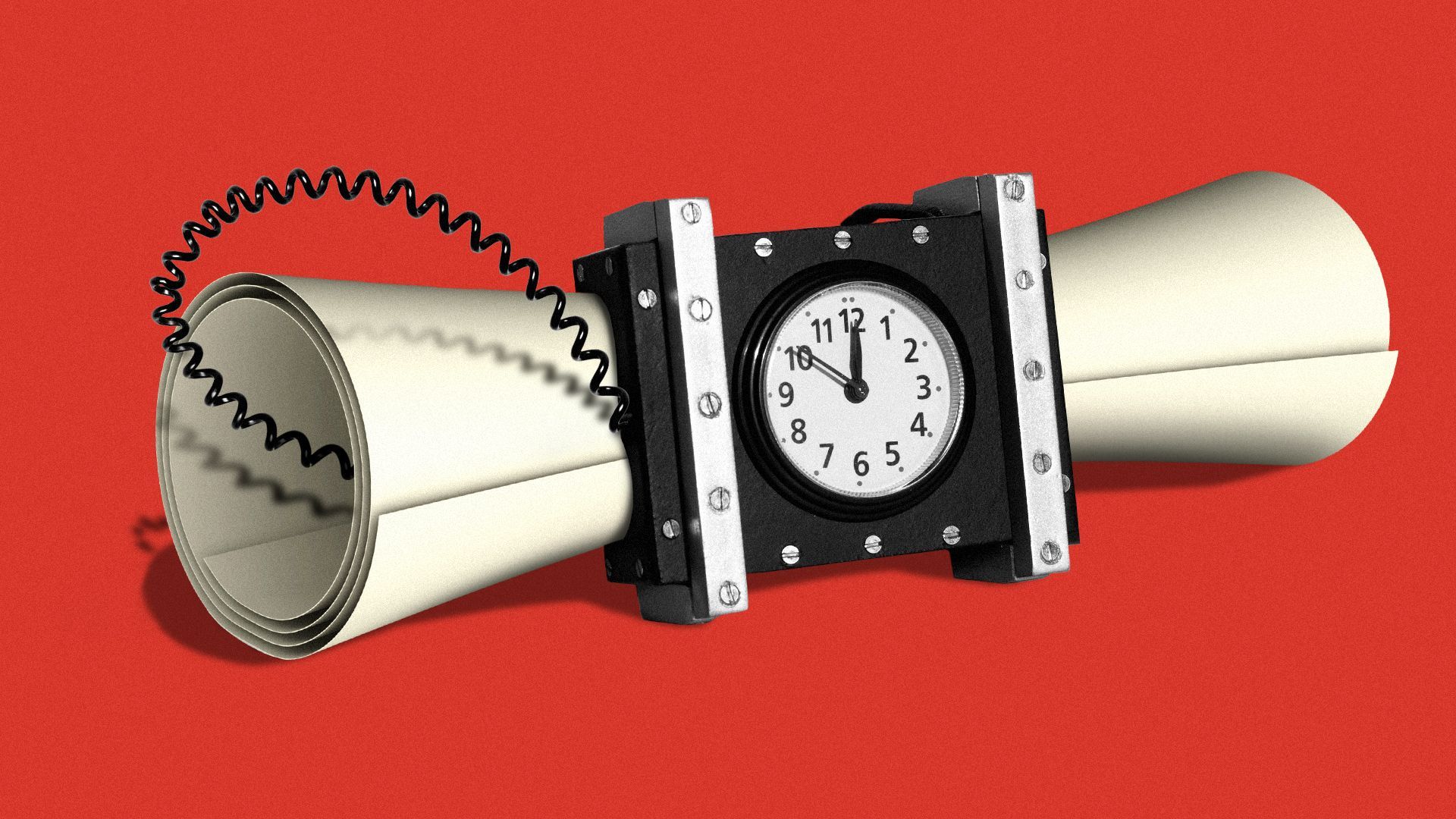
Illustration: Lindsey Bailey/Axios
President Trump yesterday declared himself the biggest "fiscal hawk" in Washington.
- He then spent the next hour urging Republicans to unite behind the most budget-busting legislation in modern U.S. history.
Why it matters: Trump's "big, beautiful bill" is projected to add trillions to the deficit over the next decade — rattling conservatives who have long warned that the U.S. is barreling toward fiscal catastrophe.
- Some Republicans now find themselves trapped between two of the party's most animating principles: Deficit reduction vs. absolute loyalty to Trump.
- That tension is threatening to derail Trump's vision for a new "Golden Age," which the White House hopes will begin in earnest with a vote on the House floor this week.
State of play: Trump and his aides have brushed off warnings that his ambitious tax-and-spending bill — combined with his pledge not to touch Social Security and Medicare — could balloon the national debt, which now tops $36 trillion.
- White House officials emphasize they inherited sky-high deficits from the Biden administration, and say their policy mix of spending cuts, deregulation, tariffs, and pro-growth policies will bring them down.
- The White House Council of Economic Advisers projected that the bill would boost GDP by 4.2% to 5.2% in the short run — a staggering level of growth that goes far beyond the mainstream consensus.
- White House press secretary Karoline Leavitt went as far as to claim that the bill "does not add to the deficit," and that it would actually save $1.6 trillion through spending cuts and Medicaid work requirements.
Reality check: Independent budget experts see that as laughable.
- The Joint Committee on Taxation projects the House reconciliation bill would increase deficits by $3.8 trillion through 2034.
- The Penn Wharton Budget Model projects deficits of almost $3.3 trillion, even when accounting for "positive economic dynamics."
- Moody's, which downgraded the U.S. credit rating on Friday, estimates that extending Trump's 2017 tax cuts alone — a central component of the bill — would add $4 trillion to the deficit over the next decade.
What they're saying: "This tax bill's enormity is being underplayed ... [It] will cost more than the 2017 tax cuts, the pandemic CARES Act, Biden's stimulus, and the Inflation Reduction Act combined," Jessica Riedl, a budget specialist at the conservative Manhattan Institute, told Yahoo Finance.
- Jim Millstein, a former chief restructuring officer at the Treasury Department, warned that most deficit projections "assume consistent economic growth."
- "Just imagine the Trump tariffs ... cause a recession," Millstein told Bloomberg. "They are risking a fiscal disaster."
The other side: Some Republicans argue that not passing the bill poses a more immediate threat. If Trump's 2017 tax cuts are allowed to expire, taxes would rise for 62% of filers, according to the Tax Foundation.
- Some conservatives also reject the notion that cutting taxes should be equated with the type of deficit spending that Congress approved during the Biden administration.
- "If you think a tax cut is a cost, you're standing in the shoes of the government, not the American people," anti-tax activist Grover Norquist told the Washington Post. "Tax cuts are income to Americans and a loss to the bureaucracy."
The bottom line: The cost of interest on America's national debt is already soaring. If rates remain as high as they are now, the U.S. could owe $40 trillion more in interest payments alone over the next 30 years.